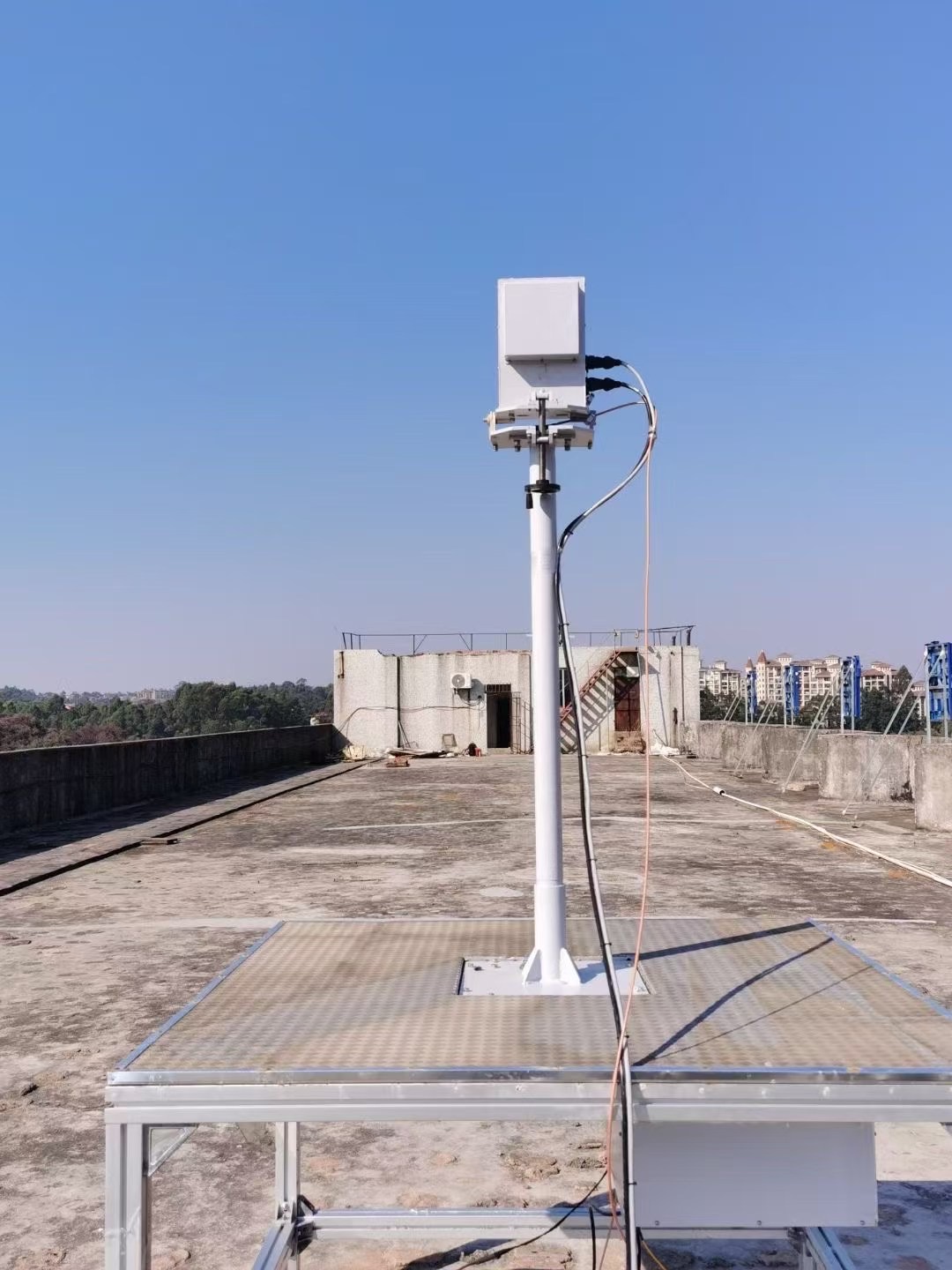Custom 5G Antenna Manufacturer: Precision-Tailored Solutions for Next-Gen Connectivity- Our Technological Leaps
As global 5G deployments surge, a 2024 Ericsson Mobility Report reveals that 65% of telecom operators face signal coverage gaps in dense urban and rural areas. At RF element, a leading 5G antenna manufacturer, we bridge this gap by engineering custom-designed 5G antennas rigorously tested in real-world conditions. This article explores how our tailored solutions, backed by advanced R&D and outdoor performance validation, empower industries to overcome 5G connectivity challenges.

Caption: RF element’s engineers validate radiation patterns and signal integrity of a custom 5G antenna in our outdoor testing field, ensuring compliance with 3GPP Release 16 specifications.
1. Core Competencies as a 5G Antenna Manufacturer
RF element specializes in designing antennas that address the unique demands of 5G networks, including mmWave frequencies, beamforming, and ultra-low latency. Our capabilities include:
Frequency Customization
Sub-6 GHz (600 MHz–6 GHz) and mmWave (24–40 GHz) designs.
Support for 5G NR bands n77/n78/n79 and legacy 4G LTE bands.
Advanced Beamforming
8×8 MIMO configurations for enhanced spatial multiplexing.
±45° dual-polarized antennas to mitigate signal interference in dense urban deployments.
Environmental Resilience
IP67-rated enclosures for outdoor use, operating in temperatures from -40°C to 85°C.
Corrosion-resistant aluminum alloy frames for coastal or industrial environments.
Rapid Prototyping
5–7 days for custom antenna samples using CNC machining and 3D printing.
2. Customization Workflow: From Concept to Deployment
Step 1: Requirement Analysis
Our engineers collaborate with clients to define:
Target frequency bands (e.g., n258 for 26 GHz mmWave).
Gain requirements (8 dBi to 25 dBi).
Mechanical constraints (size, weight, mounting options).
Step 2: Simulation & Design
HFSS and CST Studio Suite simulations optimize radiation patterns and VSWR (<1.5:1).
Material selection (RO4350B substrates for low-loss RF performance).
Step 3: Outdoor Field Testing
Every antenna undergoes rigorous validation in our 10,000㎡ outdoor testing facility:
Signal Integrity: Measured via Keysight N9042B spectrum analyzers.
Beam Steering: Validated with MVG SG 24 near-field measurement systems.
Environmental Stress Testing: 72-hour exposure to rain, dust, and temperature cycling.
Step 4: Certification & Mass Production
FCC, CE, and SRRC certifications guaranteed.
15–30 days lead time for bulk orders.
3. Applications of Custom 5G Antennas
Smart Cities
Designed a 28 GHz mmWave antenna for a Tokyo smart traffic system, reducing latency to <1 ms for vehicle-to-everything (V2X) communications.
Industrial IoT
Created a compact 3.5 GHz antenna with 120° beamwidth for automated factories, achieving 99.9% data transmission reliability.
Rural Connectivity
Deployed high-gain (21 dBi) 700 MHz antennas in remote African regions, extending coverage to 15 km per base station.
Private 5G Networks
Customized multi-sector antennas for a German automaker’s private network, supporting 10 Gbps throughput for AR-assisted assembly lines.
4. Why RF Element Outperforms Competitors
| Parameter | RF element | Generic Suppliers |
|---|---|---|
| Frequency Agility | Full 5G NR support | Limited to sub-6 GHz |
| Beamforming | 8×8 MIMO standard | 2×2 MIMO max |
| Testing Rigor | Outdoor + lab tests | Lab-only validation |
| Lead Time | 5–7 days prototyping | 14+ days |
Data verified by independent lab tests per IEEE 149-2021 standards.
5. Quality Assurance: The RF Element Difference
In-House Testing Facilities
Anechoic chambers (30 MHz–40 GHz) for precise radiation pattern analysis.
Salt spray chambers simulating 10-year coastal exposure.
Compliance Certifications
FCC ID: RFE-5G-CUST2024 (Certified for US/Canada markets).
CE RED 2014/53/EU (EU compliance).
SRRC 2024-8891 (China).
Global Support
24/7 engineering assistance for integration challenges.
On-site installation guidance in 50+ countries.
FAQ Section
Q: Can you customize antennas for harsh environments?
A: Yes. Our IP68-rated 5G mmWave antennas operate in Arctic and desert conditions, validated via MIL-STD-810H testing.
Q: How do you ensure signal consistency in mass production?
A: Automated vector network analyzers (VNAs) test 100% of units, with <0.2 dB gain variation across batches.
Call to Action
Download our 5G Antenna Design Handbook for:
Technical guidelines on mmWave antenna optimization.
Case studies of smart city and industrial deployments.
Certification checklists for FCC/CE/SRRC.
Contact RF element Today:
Email: sales@rfelement.com
Website: www.rfelement.com


